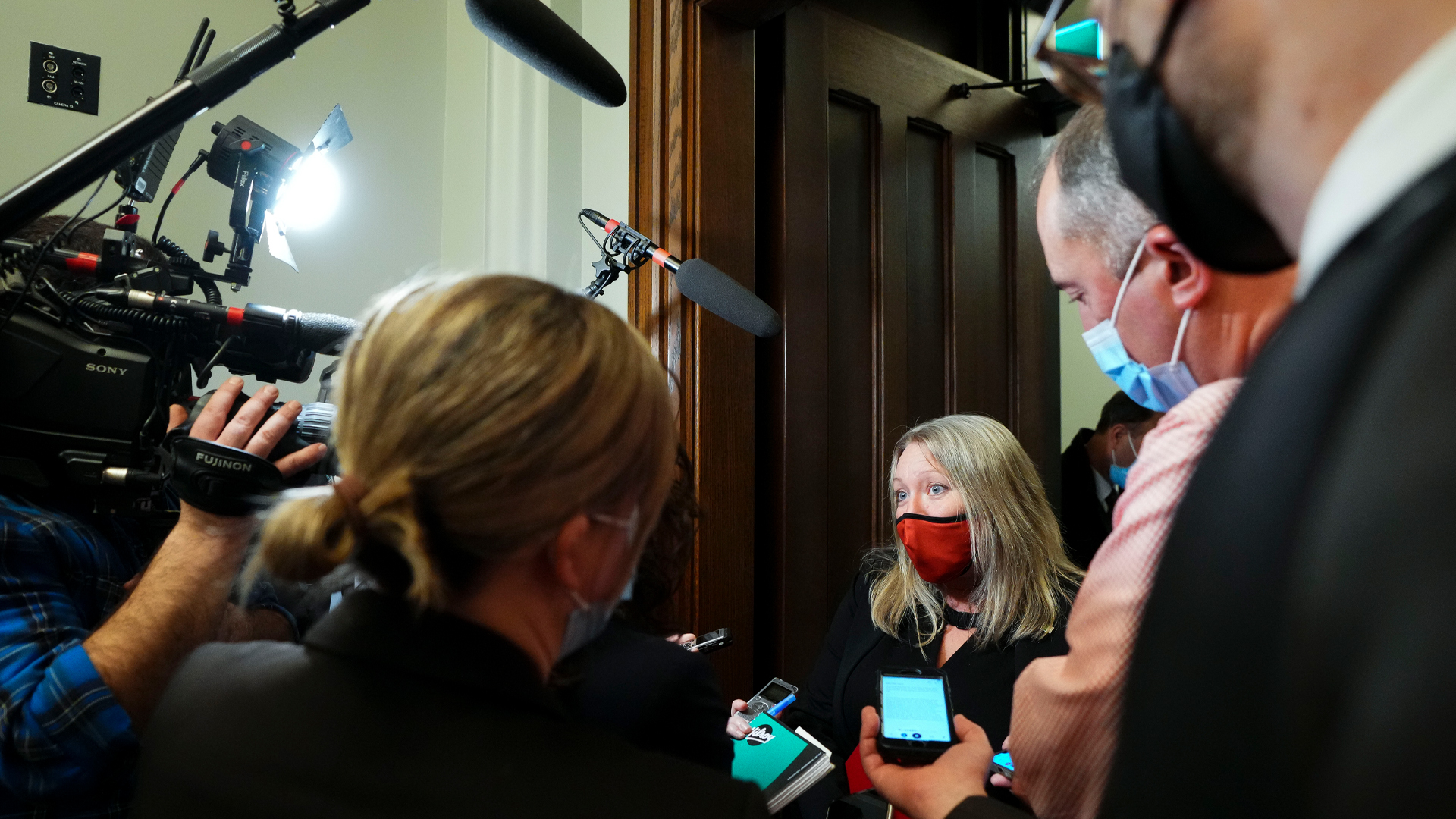
An unprecedented number of public service executives are burned out and looking for demotions after working flat-out to manage crisis after crisis since the pandemic hit two years ago, says the association representing them.
The Association of Professional Executives of the Public Service of Canada (APEX) has long been working behind the scenes to improve the pay and working conditions of executives but recently upped its campaign with an appeal to Treasury Board President Mona Fortier.
“Levels of frustration, beyond what has ever been seen before in the executive community, are being measured,” APEX CEO Carl Trottier wrote to Fortier.
“A record number of executives are asking APEX how to be demoted out of the executive cadre stating pay inversion and disrespect by the employer as the main causes.”
A flashpoint is the ever-narrowing gap between executive salaries and those of the employees they supervise. In some cases, staff are making more than their bosses, a phenomenon known as pay inversion.
In the letter, APEX called for the restoration of an independent advisory committee to review the compensation of the government’s 7,900 executives. Executives haven’t had raises in more than four years, which APEX calls “disrespectful” and “demoralizing” when many have never worked so hard as through the uncertainty and chaos of the pandemic.
Social media complicates the neutrality of the public service
The number of executives also grew more than 21 per cent in this period, reaching a record. Executives work in five levels, from entry level, known as EX 1, to assistant deputy ministers at EX 5, Deputy ministers aren’t represented by APEX, but they typically receive similar rates and get them at the same time as executives.
During the past five years, unionized public servants received wage hikes totalling eight per cent. Treasury Board is now in a new round of negotiations with its unions, which are looking for much bigger raises to keep pace with inflation.
Internal discussions about executive compensation are still underway, according to Isabella Brisson, a spokesperson for Fortier. Brisson highlighted the importance of public service executives and added the government will “continue to ensure their work is properly recognized and fairly compensated.”
The APEX appeal also comes on the heels of Treasury Board recently giving raises to other executive groups, back to 2017, such as commissioned officers at the RCMP, physicians and legal managers.
APEX argues the pay pressures are reflected in the findings of the work and health study the association has done annually for 25 years to benchmark executive health. Executives still show high levels of pride in their work, but 75 per cent say they are burned out. About 69 per cent describe an imbalance between the effort they exert, and the reward and recognition they receive.
One senior bureaucrat, not authorized to comment publicly, said paying employees in a fair, timely and impartial way is a matter of decency. The government should worry about its future leaders, especially during a global talent war when opportunities beckon elsewhere.
The shrinking pay gap between executives and unionized employees, who can also make overtime, has been a simmering issue for years. It’s why some bureaucrats refuse the promotion track, and all the extra work and responsibility that goes with it.
It’s unclear how many executives actually want out of their jobs, as opposed to simply expressing great frustration. APEX offers a confidential advisory service for executives and it reported that every week “multiple clients” sought advice for voluntary demotions as the pandemic dragged on. Such requests were rare before the pandemic.
The majority of executives are recruited from about 16 feeder groups and people in 10 of those groups make more than entry-level executives, known in government as EX 1s. APEX argues this will undermine the quality of leadership and make it difficult to hire the brightest and best.
The most acute example are senior policy analysts, known in bureaucratic circles as EC 7s and EC 8s, who earn between $129,869 and $140,571 a year compared to the top $132,100 salary for an entry-level executive. ECs are economists and social scientists, and account for more than 30 per cent of entrants into executive ranks.
Salaries for the public service’s highest-paid workers are always sensitive and governments have put off dealing with paying them more over the years to avoid public backlash.
Michel Vermette, a former APEX CEO, said the government needs an independent body to advise it on pay for executives and deputy ministers because it has become so politicized.
Executives are the only federal employees who don’t have a third-party process to advise, and advocate for, the terms and conditions of their work. Unionized employees have collective bargaining.
Salary increases for MPs and Senators are set by a formula linked to the average increases negotiated by unions for large private sector firms with more than 500 employees.
The Chrétien government created the independent Advisory Committee on Senior Level Retention and Compensation in late 1990s to advise it on how to pay and manage executives. That committee set salaries and performance pay for years.
The Harper government didn’t always take its advice, but the committee delivered reports until 2015. The committee was never abolished but atrophied in recent years.
The last time that executives waited so long for an increase was during the height of the disastrous rollout of the Phoenix pay system when thousands of rank-and-file workers were overpaid, underpaid or not paid at all. Executives were last in line for raises and waited more than two years for payments because they were at the back of the queue.
Vermette said executive salaries have not only not kept pace with inflation, but increases for unionized employees, MPs, senators and even pensions have all increased faster than those for executives and deputy ministers.
And then there is Phoenix. Vermette argued that even if executives got raises tomorrow, it could take years for the back pay and all other adjustments to find their way to executives pockets – which comes with knock-on effects on pensions and taxes.
This article was produced with support from the Accenture Fellowship on the Future of the Public Service. Read more of Kathryn’s columns here.










